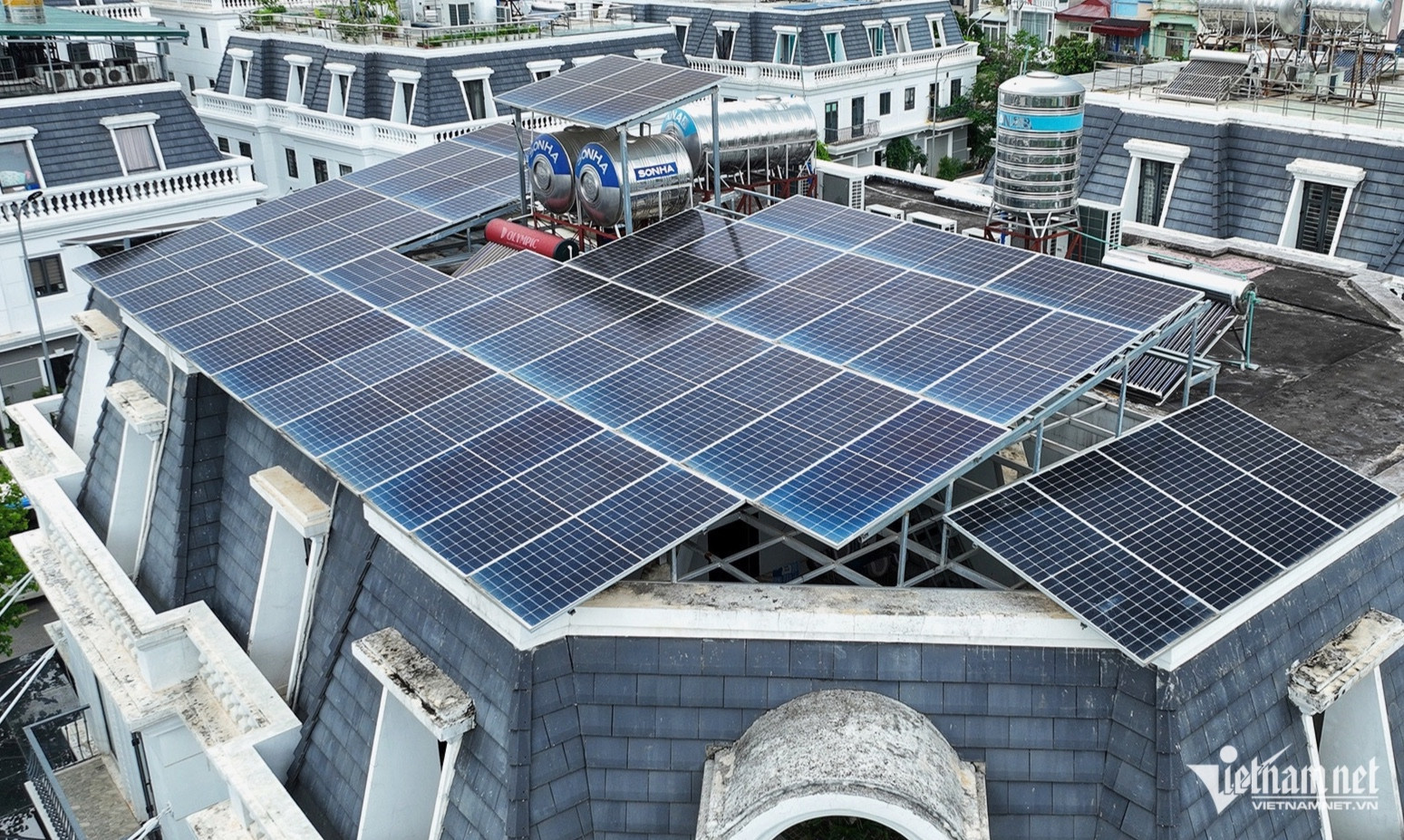
On October 21, Deputy Prime Minister Tran Hong Ha presided over a meeting to perfect the draft decree on policies encouraging rooftop solar power development before the draft is submitted to the Prime Minister for approval.
Ha stressed that the decree needs to clarify the subjects and sphere to be recovered by the decree, and ensure a scientific foundation, so that once promulgated, it can be implemented in a transparent and open manner. The decree must not create an ask-and-grant scheme; must clarify the responsibilities of involved parties; and encourage businesses and people to install more self-produced and self-consumed rooftop solar power works.
At the meeting, participants concentrated on checking terms and concepts used in the document related to the sphere of coverage and subjects of application.
Self-produced and self-consumed solar power systems are installed by institutions and individuals for self-consumption, or by other institutions and individuals as hired workers.
The concept is wider than that shown in the previous draft version, because ‘if the concept were not broadened, it would be difficult to be brought into life’.
Ha said the regulations on standards and criteria for equipment and rooftop solar power installations need to clearly specify which Vietnamese standards and criteria they must comply with, not just list qualitative criteria.
The draft decree stipulates that self-produced and self-consumed rooftop solar power systems which don’t connect to the national grid are allowed to develop with no limitations on capacity.
If the systems connect to the national grid, Ha has requested the decree compilation agency to make revision to give clear and easily understood regulations about the principles of self-produced and self-consumed solar power development in accordance with three levels of capacity of under 100kwh, from 100 kwh to below 1,000 kwh, and over 1,000kwh.
If the installation capacity is below 100kwh, institutions and individuals do not have to ask for permission, and just have to ensure the safety of equipment, fire prevention and control.
For works with installation from 100kwh to below 1,000 kwh, the post-check method will be applied. EVN (Electricity of Vietnam) is in charge of using technical solutions to control excess electricity volumes to be provided to the national grid.
As for works with capacity of over 1,000kwh, their owners will have to follow procedures to get licenses.
If owners of self-produced and self-consumed rooftop solar power systems don’t use up all the electricity output, they are allowed to sell excess output, no more than 20 percent of the installation capacity.
Tam An